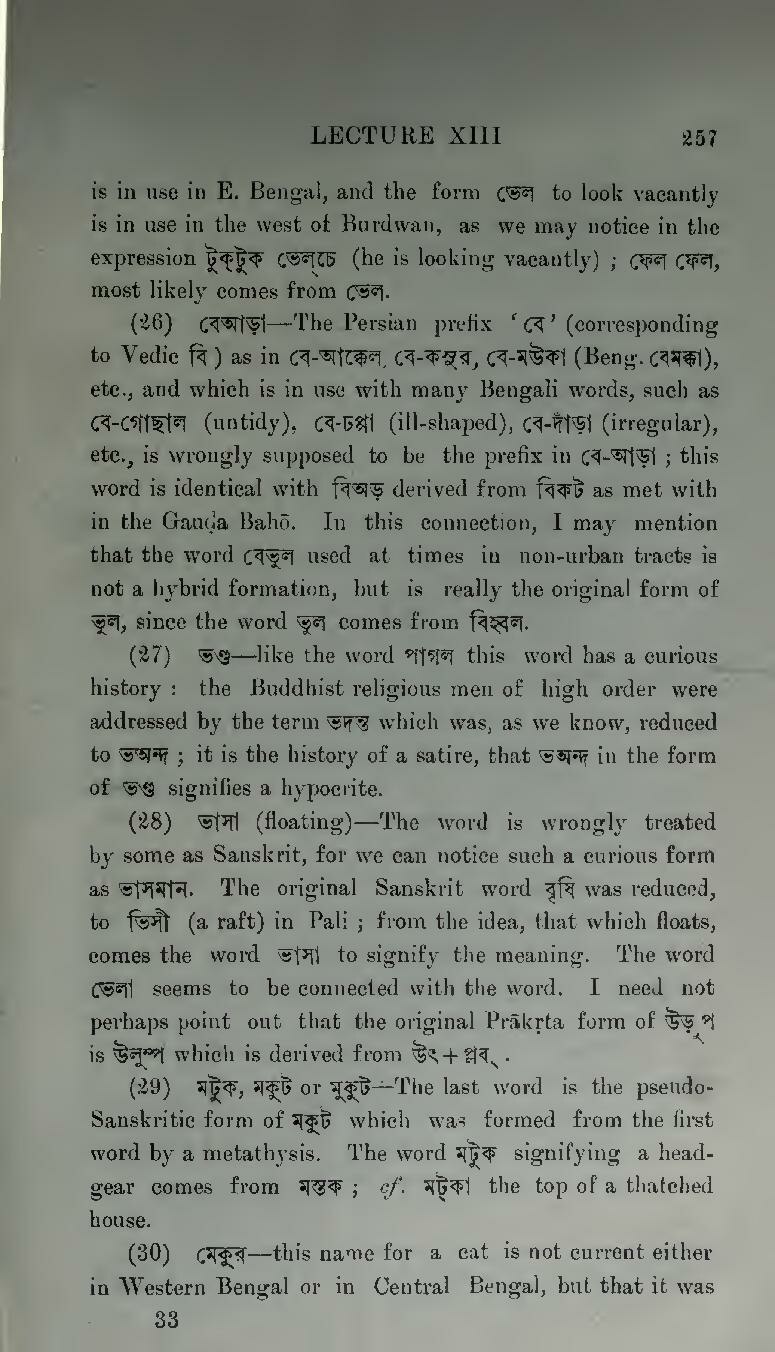is in use in E. Bengal, and the form ভেল to look vacantly is in use in the west of Burdwan, as we may notice in the expression টুক্টুক ভেল্চে (he is looking vacantly); ফেল ফেল, most likely comes from ভেল.
(20) বেআড়া—The Persian prefix 'বে' (corresponding to Vedic বি) as in বে-আক্কেল, বে-কসুর, বে-মউকা (Beng. বেমক্কা), etc., and which is in use with many Bengali words, such as বে-গোছাল (untidy), বে-ঢপ্পা (ill-shaped), বে-দাঁড়া (irregular), etc., is wrongly supposed to be the prefix in বে-আড়া; this word is identical with বিঅড় derived from বিকট as met with in the Gauḍa Bahō. In this connection, I may mention that the word বেভুল used at times in non-urban tracts is not a hybrid formation, but is really the original form of ভুল, since the word ভুল comes from বিহ্বল.
(27) ভণ্ড—like the word পাগল this word has a curious history: the Buddhist religious men of high order were addressed by the term ভদন্ত which was, as we know, reduced to ভঅন্দ; it is the history of a satire, that ভঅন্দ in the form of ভণ্ড signifies a hypocrite.
(28) ভাসা (floating)—The word is wrongly treated by some as Sanskrit, for we can notice such a curious form as ভাসমন. The original Sanskrit word বৃষি was reduced, to ভিসী (a raft) in Pali; from the idea, that which floats, comes the word ভাসা to signify the meaning. The word ভেলা seems to be connected with the word. I need not perhaps point out that the original Prākṛta form of উড়ুপ is উলুম্প which is derived from উৎ + প্লব্.
(29) মটুক, মকুট or মুকুট—The last word is the pseudo-Sanskritic form of মকুট which was formed from the first word by a metathysis. The word মটুক signifying a headgear comes from মস্তক; cf. মট্কা the top of a thatched house.
(30) মেকুর—this name for a cat is not current either in Western Bengal or in Central Bengal, but that it was
